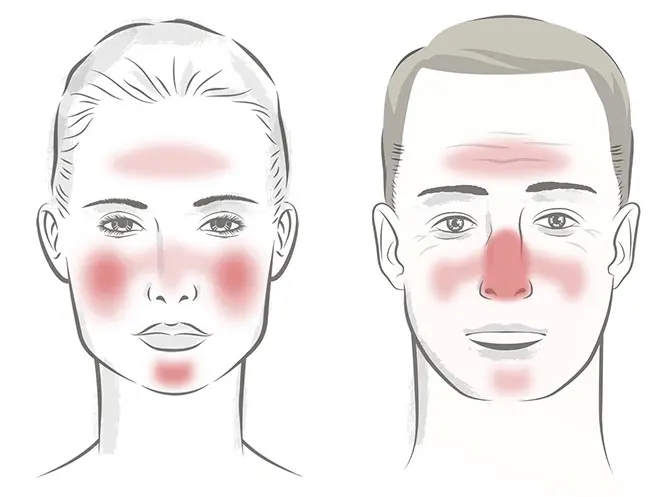 When a rosacea diagnosis is received, one of the most frequent questions is whether it is a permanent condition. That is usually followed by the patient asking about whether flare-ups can be avoided or delayed with treatment.
When a rosacea diagnosis is received, one of the most frequent questions is whether it is a permanent condition. That is usually followed by the patient asking about whether flare-ups can be avoided or delayed with treatment.
The good news is there are some things rosacea patients can do themselves to control the condition and other protocols that can be administered or prescribed by a dermatologist.
Avoiding Triggers
Different factors may cause flare-ups.
The following is a list of rosacea triggers. It is not a complete list, as triggers vary by patient.
Temperature and Weather-Related Triggers
- Freezing temperatures
- Hot temperature (indoors or outdoors)
- Humidity
- Sipping hot drinks
- High winds
- Sun exposure
- Eating hot foods (temperature)
Emotional Triggers
- Stress
- Embarrassment or heightened emotion
- Anxiety
Product Triggers
- Some skin care products
- Hair spray
- Makeup
- Prescription or over-the-counter medicine
- Covid-19 face masks
Other Triggers
- Exercise and heavy lifting
- Alcohol consumption, especially red wines, champagne, and beer
- Spicy food consumption
- Citrus fruits
- Sour cream Withdrawal from caffeine
- Menopause
- Dairy consumption (yogurt, sour cream, cheese)
- Persistent coughing
According to the National Rosacea Society’s patient survey, the most common triggers include exposure to the sun, stress, and hot weather. Identifying and avoiding one’s rosacea triggers will help reduce symptoms. For instance, if you know drinking alcohol causes a flare-up, realize that before you drink. Avoid drinking if possible. If a makeup product irritates your skin or causes your redness or bumps related to rosacea, discontinue its use immediately. Rosacea patients often will keep a log and track when flare-ups occur and what preceded them. They track which foods and beverages were consumed and the temperature of those foods, the names of the medicines they took, how they managed stress, new products they used, and any other changes in diet or exposures. After reviewing the log over several weeks or months, triggers usually can clearly be identified.
To answer the question, “Does rosacea ever go away?”
Rosacea does not go away. It can go into remission and there can be lapses in flare-ups. Left untreated, permanent damage may result.[1] This damage can be serious as it can affect a patient’s eyes and cause skin redness permanently.
Treatments can help make the condition go away for longer periods of time. According to research cited by the National Library of Science and conducted by the Journal of the European Academy of Dermatology and Venereology, remission durations can be lengthened with treatments of topical creams. Other treatments also have shown promising results in extending remission times, reducing redness, and getting rid of rosacea bumps.
Suncoast Skin Solutions is Florida’s “Most Trusted” Dermatology. Each of our locations has a dermatologist on site to treat rosacea.
Call Suncoast Skin Solutions to help you locate an experienced dermatologist in Florida.
*Photos courtesy of the National Rosacea Society
[1] According to the American Academy of Dermatology Association, permanent eye damage may occur including some loss of site. Permanent flushing of the skin may also result.

Recent Comments